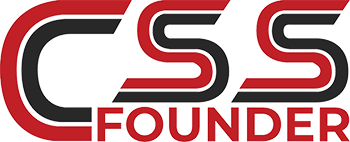As the e-commerce sector continues to thrive in New Zealand, businesses in Auckland are increasingly turning to Shopify for their online retail needs. However, understanding the costs associated with Shopify development is crucial for budgeting and planning. This comprehensive guide breaks down the various factors influencing Shopify development costs in Auckland, providing insights to help businesses make informed decisions in 2024.

Estimating Total Shopify Development Costs in Auckland
-
Basic Shopify Store (Estimated cost: NZD 5,000 – NZD 15,000)
- Pre-made theme with minor customizations
- Up to 100 products
- Basic payment and shipping integrations
- Minimal custom features
-
Mid-Range Shopify Store (Estimated cost: NZD 15,000 – NZD 50,000)
- Customized theme
- 100-1,000 products
- Multiple integrations (CRM, marketing tools)
- Several custom features
-
Advanced Shopify Store (Estimated cost: NZD 50,000 – NZD 150,000+)
- Fully custom design
- 1,000+ products
- Multiple complex integrations
- Advanced custom features and functionality
Key Factors Affecting Shopify Development Costs in Auckland
-
Project Scope and Complexity
The scope and complexity of your Shopify project significantly impact the overall cost. In Auckland’s competitive market, businesses must consider:
- Basic setup: Simple stores with minimal customization
- Medium complexity: Stores with custom features and moderate product ranges
- High complexity: Large-scale stores with advanced features and integrations
A basic Shopify setup might cost between NZD 3,000 to NZD 8,000, while complex, enterprise-level solutions can exceed NZD 100,000.
-
Developer Expertise and Rates
Auckland’s Shopify developer rates vary based on experience and expertise:
- Junior developers: NZD 50-80 per hour
- Mid-level developers: NZD 80-120 per hour
- Senior developers: NZD 120-200+ per hour
- Specialized agencies: NZD 150-300+ per hour
Hiring a more experienced developer or agency might seem costly initially but can lead to long-term savings through efficient development and fewer post-launch issues.
-
Custom Design and UI/UX
Design costs can vary significantly:
- Pre-made themes: NZD 0-300
- Theme customization: NZD 1,000-5,000
- Fully custom design: NZD 5,000-20,000+
Investing in a unique, user-friendly design can set your store apart in Auckland’s competitive e-commerce landscape.
-
Functionality and Feature Development
Additional features increase development costs but can enhance your store’s functionality:
- Advanced search capabilities: NZD 1,000-3,000
- Customer account systems: NZD 1,500-4,000
- Wishlist functionality: NZD 800-2,000
- Product customization tools: NZD 2,000-6,000
- Subscription services: NZD 3,000-8,000
-
Third-party Integrations
Integrating Shopify with other systems is often necessary:
- Payment gateways (e.g., POLi, Laybuy): NZD 500-2,000 per integration
- Shipping providers (e.g., NZ Post, Aramex): NZD 800-3,000 per integration
- Inventory management systems: NZD 1,500-5,000
- CRM tools: NZD 2,000-6,000
- Marketing automation platforms: NZD 1,500-4,000
-
Data Migration and Content Population
Transferring existing data to your new Shopify store incurs costs:
- Small stores (up to 500 products): NZD 500-1,500
- Medium stores (500-5,000 products): NZD 1,500-5,000
- Large stores (5,000+ products): NZD 5,000-15,000+
-
Testing and Quality Assurance
Thorough testing ensures a smooth launch:
- Basic testing: NZD 500-1,500
- Comprehensive testing: NZD 1,500-5,000
- Advanced testing (including security audits): NZD 5,000-10,000+
-
Training and Documentation
Empowering your team to manage the Shopify store:
- Basic training: NZD 500-1,500
- Comprehensive training and documentation: NZD 1,500-5,000
-
Ongoing Maintenance and Support
Post-launch support is crucial:
- Basic support package: NZD 100-500 per month
- Comprehensive support and maintenance: NZD 500-2,000 per month
- 24/7 support and continuous improvement: NZD 2,000-5,000+ per month
Optimizing Your Shopify Development Budget in Auckland
-
Prioritize Features
Identify must-have features versus nice-to-haves. Implement additional features in phases to spread out costs and allow for user feedback. Feature prioritization is a critical strategy for managing Shopify development costs while ensuring your e-commerce store meets essential business needs. For Auckland-based businesses, this approach can lead to more efficient use of resources and a faster route to market.
-
Consider Long-Term Costs
Factor in ongoing expenses like Shopify subscription fees, app costs, and maintenance when budgeting for your project.While initial development costs are often the primary focus, savvy Auckland businesses understand the importance of factoring in long-term expenses associated with running and maintaining a Shopify store. This approach can lead to more informed decision-making and better budget allocation over time.
-
Leverage Local Talent
Auckland’s growing pool of Shopify developers offers benefits like easier communication and understanding of the local market. Consider partnering with local agencies or freelancers. Utilizing Auckland-based developers and agencies for your Shopify project can offer numerous benefits, from better communication to an understanding of local market nuances.
-
Obtain Multiple Quotes
Reach out to several developers or agencies for quotes. This provides a better understanding of market rates and helps find the best value for your project.Securing and comparing multiple quotes from different Shopify developers or agencies in Auckland is a crucial step in managing development costs effectively. This approach not only helps you find competitive pricing but also provides insights into various development approaches and expertise levels.
-
Invest in Scalability
Choose a development approach that allows for easy scaling as your business grows. This may cost more upfront but can save money in the long run.Scalability refers to a Shopify store’s ability to handle growth in terms of traffic, products, orders, and functionality without requiring a complete overhaul. In Auckland’s dynamic e-commerce landscape, this is crucial for businesses anticipating rapid expansion or seasonal fluctuations.
-
Utilize Shopify’s Built-in Features
Maximize the use of Shopify’s native features before opting for custom development, potentially saving on development costs.Shopify offers a robust set of native features that can significantly reduce custom development needs and costs. For Auckland businesses, leveraging these built-in capabilities can be a smart way to create a powerful e-commerce presence without breaking the bank.
-
Consider a Minimum Viable Product (MVP) Approach
Launch with core features and iterate based on user feedback, potentially reducing initial development costs.An MVP in Shopify development refers to creating an online store with only the core features necessary to satisfy early customers and provide feedback for future development. This approach allows Auckland businesses to launch faster, learn from real user interactions, and iterate based on actual market demand.
Conclusion:
Balancing Cost and Quality in Auckland’s Shopify Development Market
While Shopify development costs in Auckland can vary widely, understanding these factors helps businesses budget effectively and make informed decisions. Remember that the cheapest option isn’t always the most cost-effective in the long run. Investing in quality development can lead to a more successful e-commerce presence, potentially increasing ROI and reducing future maintenance costs.
As Auckland’s e-commerce market continues to evolve, staying informed about Shopify development costs and trends is crucial. By carefully considering your needs, budget, and long-term goals, you can find the right balance between cost and quality, ensuring your Shopify store stands out in New Zealand’s competitive online retail landscape.








